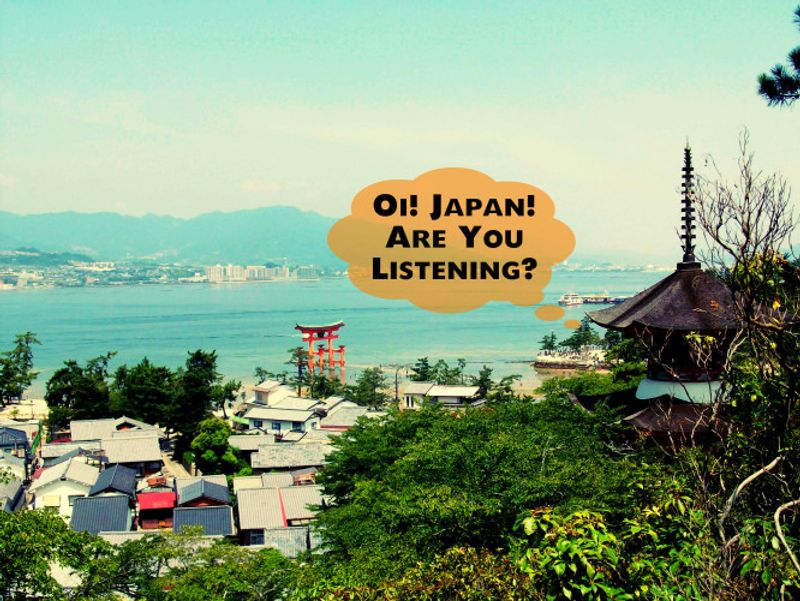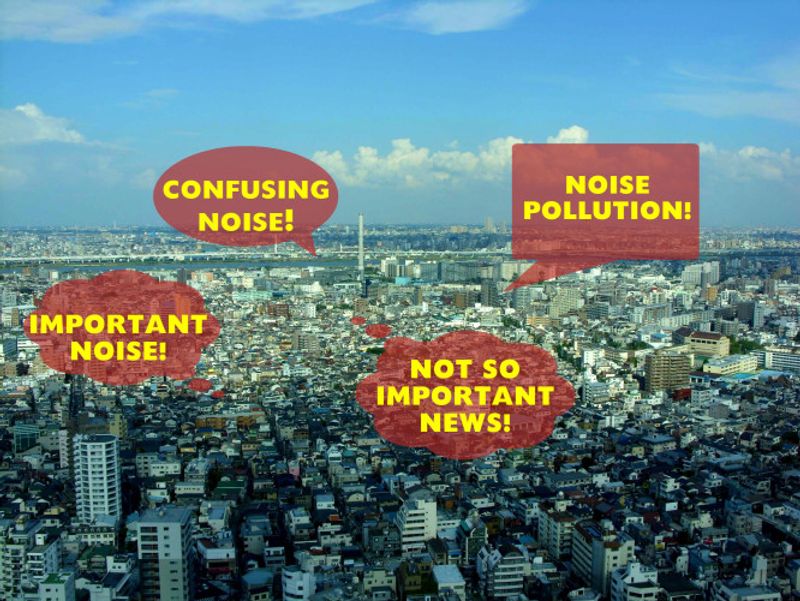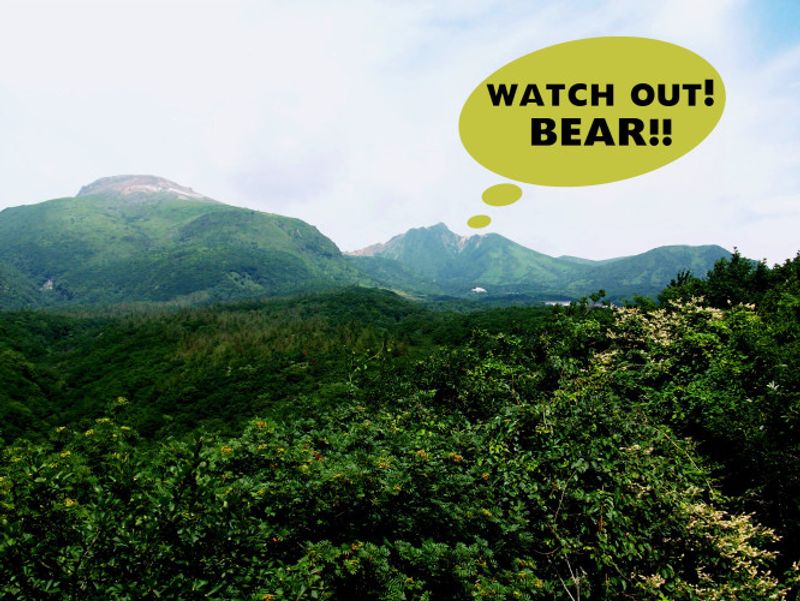Apr 10, 2015
Japan’s City Office Public Service Announcements: Distinguishable From The Din?

Japan is noisy! Obviously more so in the urban areas, but even in a quaint rural hamlet your ears are still open to a potential assault from all manner sources.
Aside from the usual banal culprits (traffic, drunken yobs, garbage collectors), sources range from the psychotically annoying (e.g. bōsōzoku; emotionally/intellectually stunted blokes with mummy and daddy issues who vent their insecurity by riding around neighborhoods revving the engines of their motorbikes), through slightly less annoying, sometimes useful (vans collecting household goods to be recycled, trucks selling hot potatoes, and all manner of shouting advertisements), ending up at the potentially life-saving (earthquake/weather warnings). Throw into the mix an election build-up where candidates pitch up outside train stations and drive around housing areas in a bid to out shout their rivals through megaphones, and it can be hard to distinguish that noise which is important from that which is just pollution.
For the foreigner in Japan, perhaps some of the country’s most important noise comes in the form of public service announcements, delivered by the local city office through a city-wide loudspeaker system. At times such announcements are essential, at others, they’re of little interest. The problem is, to the uninitiated and to the untrained ear, they all sound the same.

Listen Closely!
Potentially Important City Office Announcements
Earthquake
Most earthquakes in Japan aren’t worth getting out of bed for. If the City Office is announcing them though, you should be on alert! The language used may differ depending on the city. Yaizu City (Shizuoka) has produced an English translation of their announcements in the case of an earthquake …
A major earthquake is about to occur:
おおじしんです。/ Oo jishin desu. / Lit. Big earthquake.
Post major earthquake:
しんど...のじしんがはっせいしました。 ひのしまつをしてください。てれび・らじお をつけ、おちついてこうどうしてください。
Shindo … no jishin ga hasei shimashita. Hinoshimatsu wo shitekudasai. Terebi, rajio wo tsuke, ochitsuite koudoushite kudasai.
An earthquake with a seismic intensity of … has occurred. Please turn off the gas and extinguish all fire sources. Please turn on the TV or radio and stay calm.
Tsunami
If you live in coastal areas be especially tuned in to the city’s tsunami warnings. Again, from the city of Yaizu …
Tsunami Warning:
おおつなみけいほうがはっぴょうされまし た。かいがんふきんのかたはたかだいにひ なんしてください。
Oo tsunami keihou ga hapyousaremashita. Kaiganfukin no kata wa takadai ni hinanshitekudasai.
A Tsunami Warning has been issued. For those near the ocean, please evacuate to high ground.
Tsunami Advisory:
つなみちゅういほうがはっぴょうされまし た。かいがんふきんのかたはちゅういして ください。
Tsunami Chyuihou ga hapyousaremashita. Kaiganfukin no kata wa chyuishitekudasai.
A Tsunami Advisory has been issued. For those near the ocean, please be careful.
For the full details of Yaizu City’s earthquake/tsunami announcements visit the link here. The ‘pronunciation’ translation (the bit in italics) was created by this writer and is in no way official!!
Other Potentially Important City Office Announcements
In the event/approach of a large typhoon.
In the event a dangerous animal is spotted in the area. Almost zero chance of this happening in Japan’s major urban centers (unless something escapes from a zoo), but it’s a potential hazard in remote/mountainous areas where bears live. The Japanese for bear - kuma / クマ / 熊.
In the event that a suspicious person/perpetrator of a crime is in the area.

Slightly Less Important City Office Announcements
In the event of heavy rains (大雨 / ooame)/potential flooding.
In the event of a missing person (行方不明 / yukuefumei) (usually someone elderly who is unable to find their way home).
In the event that an election (選挙 / senkyo) is taking place (announcing the day to place a vote).
The Best/Worst/Most Forgettable of The Rest
Some cities use their loudspeaker systems to announce local events. One such example might be summer time firework festivals (花火大会 / hanabi taikai).
This writer has heard accounts of cities making announcements about the dry atmosphere, and thus the potential for fires to breakout. In my city though, this warning is communicated by groups of volunteers patrolling the area, banging two pieces of wood together.
Undoubtedly the most common announcement is that used to tell school children it’s time for them to go home. Sounds a bit George Orwell 1984!, I hear you say. Well, yes! That said, most parents probably appreciate it. Oh, and Japanese school kids aren’t allowed to wear watches! The ‘public service’ is called 夕焼け放送 / yuuyake housou / sunset broadcast. In this writer’s area it can be heard at 4 pm in winter, and as late as 5:30 pm in summer. It goes something like this …
(time)になりました。お子さんたちはお家へ帰りましょう。
… ni narimashita. Okosantachi wa ouchi ei kaerimashyou.
The time is now ... . Children, go back home!
There will be discrepancies between cities in terms of both content and language used for the announcements talked about here. Finding scripts and definitive lists of the regular city office loudspeaker announcements is also difficult (even in Japanese). With that in mind, perhaps we could create a useful resource for each other, using your comments below to inform of any announcements you have heard where you live.
If anyone out there is troubled by some of Japan’s noise issues, this October 2014 article in the Japan Times makes for an interesting read, and highlights some organisations that are campaigning for a quieter Japan.



0 Comments